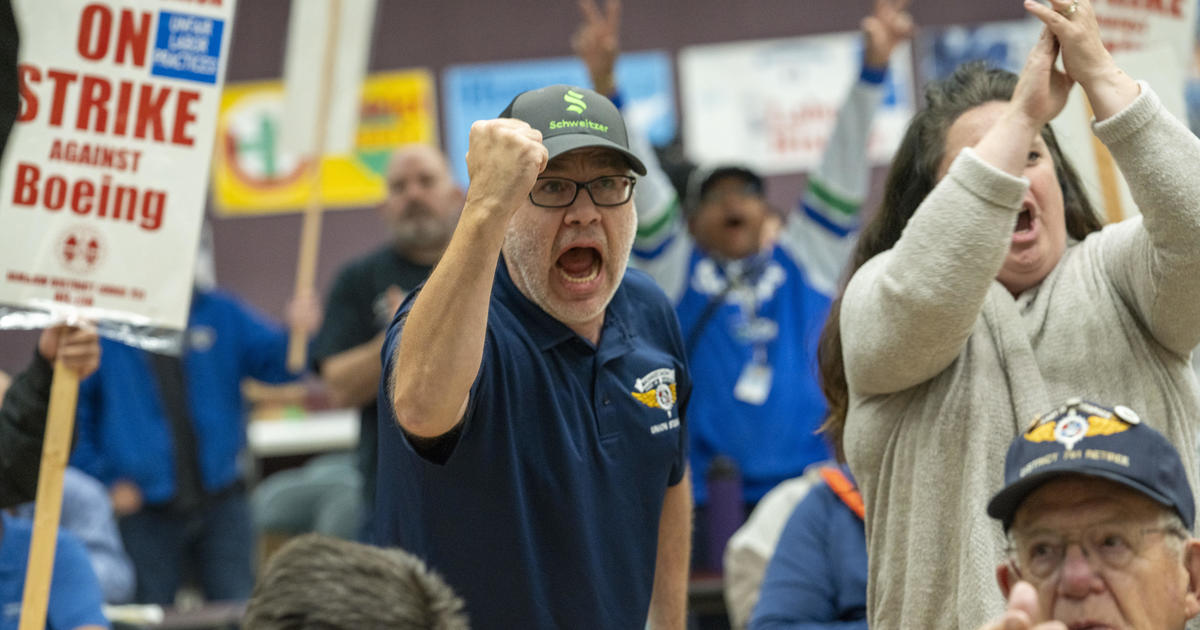Boeing machinists on Wednesday voted to reject a new labor contract proposal and continue a costly weekslong strike that halted production of some of the embattled company’s top-selling planes, resulting in furloughs and layoff announcements for thousands of workers.
The International Association of Machinists and Aerospace Workers announced on social media that 64% of members voted to reject the deal.
“The strike will continue at all designated picket locations,” the union said.
The vote comes more than a month after 33,000 union members overwhelmingly rejected a negotiated offer and walked off the job on Sept. 13.
The IAM on Saturday had said it had brokered a tentative deal with Boeing that included cumulative raises of almost 40% over four years, significantly more than the prior negotiated offer.
The new contract offer also includes a $7,000 ratification bonus and a larger company contribution to retirement plans. It did not bring back a defined benefit pension that was frozen a decade ago and that many wanted to return to.
Contract talks broke down earlier in the month, but the company and union resumed bargaining in recent days, with Julie Su, the acting labor secretary, traveling to Seattle to meet with both sides.
If workers had voted to accept the contract offer, they would have had to return to work on Oct. 31, according to the union.
Boeing can’t produce any new 737s so long as the strike that shut down assembly plants in the Seattle area continues. One major Boeing jet, the 787 Dreamliner, is manufactured at a nonunion factory in South Carolina.
As machinists cast their ballots, Boeing reported a massive third-quarter loss of more than $6 billion, with the airplane manufacturer hit by the five-week-old strike and charges tied to its commercial aircraft and defense programs.
Boeing is struggling to right itself after manufacturing troubles and multiple federal investigations after an in-air panel blowout in January.
In August, the company brought in Kelly Ortberg, a seasoned aerospace executive, as its new CEO with the mandate to right Boeing’s safety and manufacturing issues. Ortberg, who earlier this month announced job cuts of 10% of the company’s workforce, or 17,000 employees, on Wednesday wrote in prepared remarks he delivered to investors Wednesday that Boeing is “at a crossroads.”
“The trust in our company has eroded,” he wrote. “We’ve had serious lapses in our performance across the company which have disappointed many of our customers.”

